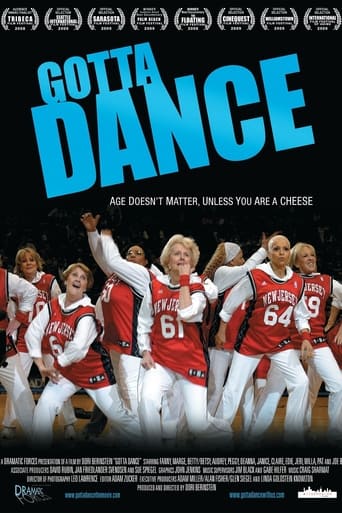

The Corporation (2004)
Since the late 18th century American legal decision that the business corporation organizational model is legally a person, it has become a dominant economic, political and social force around the globe. This film takes an in-depth psychological examination of the organization model through various case studies. What the study illustrates is that in the its behaviour, this type of "person" typically acts like a dangerously destructive psychopath without conscience. Furthermore, we see the profound threat this psychopath has for our world and our future, but also how the people with courage, intelligence and determination can do to stop it.
Watch Trailer
Cast


Similar titles
Reviews
Let's be realistic.
Good concept, poorly executed.
Absolutely Fantastic
Fun premise, good actors, bad writing. This film seemed to have potential at the beginning but it quickly devolves into a trite action film. Ultimately it's very boring.
It is a tough call to disseminate all that is clearly outlined in this non discriminatory documentary. The film offers no judgment, but simply allows facts to be presented and the viewer to judge without prejudice. All I will say is that two people in this do more for the cause of corporation hatred than any 2 hour factual expose could ever do........watch Michael Walker & Carlton Brown, who appear with regularity, with special interest. Watch as Brown laughs st the twin tower atrocity, as it boosts his clients gold portfolio or as Walker says global pollution is inevitable, these are low level patsy's who are apologists for corporate greed so it beggars belief the attitude of CEO's and board members as well as shareholders if this attitude filters down the food chain. My politics and outlook on life has gone through a paradigm shift in the last 4 years and I am, like the CEO of a carpet manufacturer in the documentary, totally focused on provenance, organic, ethical living and I have ceased using the large corporations for as much as possible. I shop locally and only independent suppliers. I buy no meat from supermarkets, in fact I rarely use a supermarket. I am disgusted at how society has evolved and I was a business owner and a 6 figure salary earner for 20 years. Now I work for 1/4 salary in a not for profit organisation and am learning to grow my own food and be more self sufficient. A tipping point is being reached and we need to be ahead of the curve. As with all empires, it goes full circle and crumbles into dust. I foresee a future co- operative based society where all things in a future life will be done locally.
Today bashing big business is increasingly appealing. Specifically, the mismanagement of government is blamed on multinational corporate takeovers. A case in point is the privatization of the water supply in Banzer Suàrez's authoritarian Bolivia presented as evidence of this argument in 2004's The Corporation, where Noam Chomsky compared the entity of the modern multinational corporation to the slaving enterprise of a former age.That Banzer's rule led to such a dire financial situation where, in order to appease foreign creditors and continue receiving World Bank loans, he was forced to concede and privatize Bolivia's national water supply in La Paz/El Alto in 1997, and then Cochabamba in 1999, is not mentioned. We are to interpret the 'water wars' that then took place in 2000 and 2005, respectively, as solely the result of Suez, and Biwater/Bechtel's inherent greed.In this documentary the much-maligned Export Processing Zones (EPZs) are also the subject of inflammatory rhetoric. Naomi Klein emphatically points to these largely tax-free areas in low-cost, labour-abundant cities around the globe in which large multinational corporations are enticed to operate, where "the workers rarely make enough to buy three meals a day let alone feed their local economy".If we consider basic economic trade theory, we know that, in the real world, national wage rates do, in fact, reflect differences in productivity. In 1975 South Korea was a low-wage-rate low-productivity country, where workers earned 5% of what they did in the US; by 2007 its productivity was around 50% that of the US and its wages had, accordingly, risen.Where, then, does the blame for the appalling living conditions of labourers in certain Central American and Southeast Asian countries lie? In the corruption of their governments, the weakness of their financial sectors, capital markets, judiciary – in short: the inefficiency of their institutions. That poor people in rich countries should be subsidizing rich people in corrupt poor countries, to paraphrase the late Sir James Goldsmith, is not the result of the liberalization of trade. Rather, it is the fruit of systemic problems in less-developed societies.I would advise anyone who wishes to watch this documentary to do so with an open mind (i.e. remember that it is very skewed to a particular viewpoint). Because of that, and the fact that it doesn't really offer an objective analysis, I give it 5.
The Corporation is a documentary film written by University of British Columbia law professor Joel Bakan, and directed by Mark Achbar and Jennifer Abbott that examines the modern-day corporation, considering its legal status as a class of person and evaluating its behavior towards society and the world at large as a psychiatrist might evaluate an ordinary person. The filmmakers interview leftist figures like Michael Moore, Howard Zinn, Naomi Klein, and Noam Chomsky, and give representatives from companies Burson Marsteller, Disney, Pfizer, and Initiative Media a chance to relay their own points-of-view.In the mid-1800s, corporations began to be recognized as individuals by U.S. courts, granting them unprecedented rights. Applying psychiatric principles and FBI forensic techniques, and through a series of case studies, the film determines that this entity, the corporation, which has an increasing power over the day-to-day existence of nearly every living creature on earth, would be a psychopath. The case studies include a story about how two reporters were fired from Fox News for refusing to soft-pedal a story about the dangers of a Monsanto product given to dairy cows, and another about Bolivian workers who banded together to defend their rights to their own water supply. The pervasiveness of corporate influence on our lives is explored through an examination of efforts to influence behavior, including that of children.An epic in length and breadth, it aims at nothing less than a full-scale portrait of the most dominant institution on the planet Earth in our lifetime--a phenomenon all the more remarkable, if not downright frightening, when you consider that the corporation as we know it has been around for only about 150 years. It used to be that corporations were, by definition, short-lived and finite in agenda. If a town needed a bridge built, a corporation was set up to finance and complete the project; when the bridge was an accomplished fact, the corporation ceased to be. Then came the 19th-century robber barons, and the courts were prevailed upon to define corporations not as get-the-job-done mechanisms but as persons under the 14th Amendment with full civil rights to life, liberty, and the pursuit of happiness.Finally,this is a satisfyingly dense, thought-provoking rebuttal to some of capitalism's central arguments.
Succeeds on countless levels. A groundbreaking work which is as important and significant as any of which I'm aware, and theatrically perfect. So brilliant, absorbing, enlightening, and enabling, is this documentary; that in my opinion, it ranks with The Beatles, Shakespeare, sex, whipped cream, kittens, and the mini-skirt. The audience with whom I first saw it (Philadelphia Film Festival) immediately stood and applauded at the films end. I myself had tears of satisfaction and felt inspired by it beyond any telling. The 2-part DVD-set version will continue to educate one for many hours on end. So, please, please, please; everyone, see "The Corporation" and then pass it around. You really must do this thing!!









